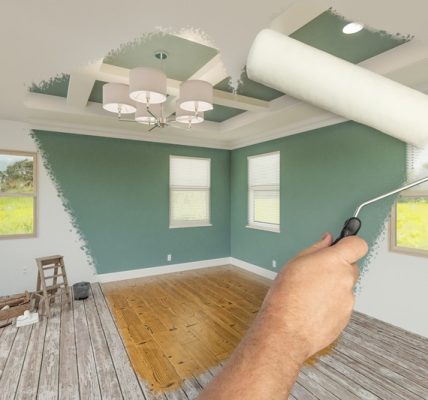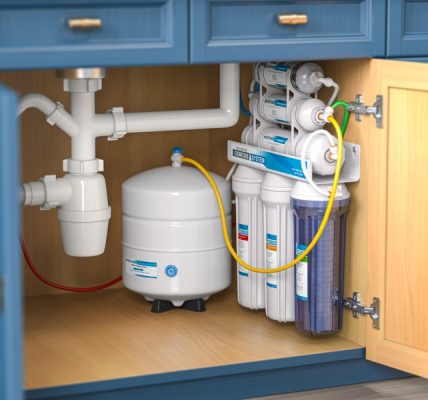Buying a home is one of the most significant financial decisions ever. A home inspection is essential to ensure you’re making an intelligent investment. However, a thorough inspection report can be more than just a checklist of things to fix — it can be a powerful tool to negotiate a better deal. This article will discuss leveraging a detailed home inspection report to get the most value from your purchase.
How Can a Home Inspection Report Help You Negotiate?
A home inspection report is more than just a list of what’s right or wrong with a property. It provides valuable insight into the home’s overall condition and can be used to either lower the price, ask for repairs, or secure additional benefits in the sale. Here are the main ways a detailed inspection report can work in your favor:
1. Negotiating a Lower Price
One of the primary ways to use a home inspection report is to negotiate the purchase price. If the report reveals significant issues such as a leaky roof, faulty wiring, or structural problems, you can argue that the property isn’t worth the asking price. The more severe the issues, the more leverage you have to negotiate a lower price.
For example, during home inspections Riverview, FL, if the inspector finds that the air conditioning unit is nearing the end of its lifespan, this can serve as a basis for reducing the price since replacing the unit would be an additional cost after purchasing the home.
2. Requesting Repairs
In many cases, buyers prefer to ask the seller to make necessary repairs rather than reduce the price. This approach can work well if you don’t want to deal with repairs yourself after moving in. A thorough inspection report can provide a list of repairs that must be addressed before you finalize the sale.
When considering repairs, it’s helpful to prioritize significant issues like electrical, plumbing, or roofing problems. More minor cosmetic fixes can often wait or be dealt with later. However, serious issues that affect the home’s safety or functionality should be tackled immediately. Be sure to get these requests in writing so that the seller is held accountable.
3. Asking for Credits or Closing Costs
Sometimes, a seller might want to avoid dealing with repairs themselves, especially if they’re in a hurry to sell the house. In this case, you can use the inspection report to negotiate for credits at closing. These credits can be used to cover the cost of future repairs or closing costs.
For example, if home inspections in Lakeland, FL, uncover an outdated electrical panel, you might request a credit to cover the cost of updating it after closing. This allows the seller to move forward without making the repairs while compensating you for future expenses.
4. Walking Away from a Bad Deal
Sometimes, the inspection report may reveal so many issues that the home becomes a bad deal. If the list of repairs is too long or the cost of fixing everything would be excessive, you can use the report to justify walking away from the deal. Most real estate contracts include a contingency that allows the buyer to back out of the purchase if the home inspection reveals significant problems.
Knowing that you have this option can give you additional leverage in negotiations. Sellers may be more willing to compromise on price or repairs if they know you’re prepared to walk away.
Key Areas to Focus On in a Home Inspection
A good home inspection will cover every aspect of the house, from the roof to the foundation. However, there are a few areas that can be particularly valuable for negotiating:
Structural Integrity
The foundation, walls, and roof are critical to a home’s long-term durability. If an inspection report shows issues with any of these components, they can significantly impact the home’s value. Problems such as cracks in the foundation, roof leaks, or sagging walls should be addressed immediately.
Electrical and Plumbing Systems
Outdated or faulty wiring and plumbing are not only expensive to repair but can also be safety hazards. A thorough home inspection will identify problems with these systems, such as exposed wiring, inadequate circuit breakers, or corroded pipes. These issues should be fixed before you move in, or you can use them as leverage to negotiate the price.
HVAC System
The heating, ventilation, and air conditioning (HVAC) system is another essential part of the home. If the system is old or inefficient, it could lead to higher utility bills or the need for replacement soon after moving in. Revealing the outdated HVAC system can be an excellent opportunity to ask for repairs or a price reduction.
Water Damage or Mold
Water damage and mold are serious issues that can affect a home’s structural integrity and the health of its occupants. If the inspection report shows signs of water damage, such as stains on the ceiling or walls or mold in the basement or attic, you should address these problems immediately. If the issues are too severe, you can negotiate for repairs or even walk away from the deal.
How to Maximize Your Leverage with the Seller
Once you have the inspection report, it’s time to strategize your negotiation. Here are a few tips to help you maximize your leverage:
-
Prioritize repairs: Focus on significant issues that affect the home’s safety, functionality, or long-term value. Cosmetic fixes can be dealt with later.
-
Be reasonable: While using the report to your advantage is essential, asking for fewer concessions can turn off a seller. Focus on the most critical issues.
-
Get multiple quotes: If you’re asking for repairs or credits, get quotes from contractors to provide an accurate estimate of costs. This gives you concrete numbers to present to the seller.
-
Know when to compromise: Sometimes, a seller may only agree to some of your requests. Decide which repairs are deal-breakers and which ones you will handle yourself.
When negotiating after home inspections Brooksville, remember that the key is to strike a balance that benefits both parties. You want to ensure the home is a sound investment without overwhelming the seller with demands.
Wrapping Up
A thorough home inspection report is one of the most valuable tools when negotiating a home purchase. By identifying key issues such as structural problems, electrical or plumbing concerns, and HVAC inefficiencies, you can negotiate for price reductions, repairs, or credits to cover future expenses. A detailed inspection report empowers you to make informed decisions and ensures your new home is worth the investment. Using the report wisely can maximize your negotiation power and secure the best outcome for your purchase.








